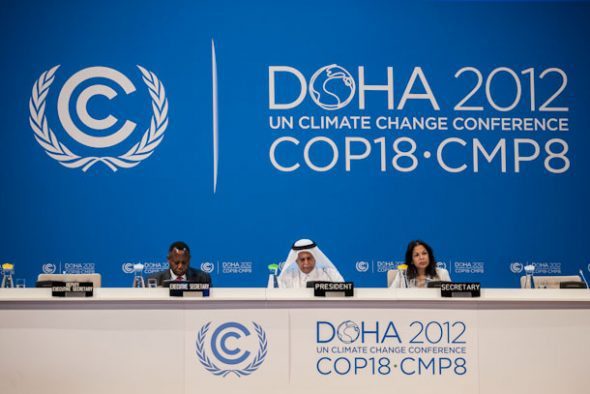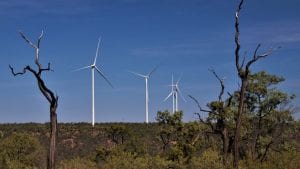The Doha climate summit is expected to spill over into the early hours of Saturday morning (afternoon, Sydney time). At this stage there are too many unresolved issues to predict with any certainty how things will end up.
What is clear is that parties came to these talks with different expectations of what was to be achieved and this has been a barrier to progress.
For the most part developed countries came to Doha focused on structural issues – launching phase-two of the Kyoto Protocol; closing negotiations on long-term cooperation originally kicked off in Bali in 2007; and establishing a clear way forward for the negotiations to establish a new treaty in 2015. On the other hand, small island states and least developed countries came to Doha looking for more ambitious commitments on emission reduction targets and international climate finance.
Clearly, some other countries – both developed and developing – came to Doha determined to delay everything.
There is still time for ministers and deputy ministers to strike a balance between structural and substantive outcomes in Doha, but this will require movement from all sides.
While the final outcome is still to be determined, it is safe to say that Doha must provide a wake-up call for all governments. These negotiations will not deliver the breakthroughs that are required if countries are unwilling to make stronger commitments. The take home message from Doha is that governments need to re-double their efforts and increase the pace of negotiations.
For Australia, this means being willing to commit to much stronger emission reduction targets (at least 25 per cent below 1990 levels by 2020) and scaled up financial assistance for developing countries.
There is no doubt that Australia had a positive influence on the negotiations by announcing its intention to join the second commitment period of the Kyoto Protocol. This move has been widely praised during the summit. It was also very positive to see Australia emphasising that it remains open to moving to a 25 per cent target if certain conditions are met.
However it is disappointing that Australia has not yet used Doha as an opportunity to announce any new funding to help poor and vulnerable countries reduce emissions and adapt to the unavoidable impacts of climate change. With a relatively strong economy and a growing aid budget, Australia is very well placed to announce new funding in Doha.
No doubt there will be some who will use the outcome of Doha – irrespective of what it actually looks like – as an excuse for inaction in Australia. This is completely unjustified. As important as the UN climate talks are, they are no longer a fair reflection of the extent of action around the world.
National carbon pricing schemes are now in place in thirty-four countries, with sub-national schemes also in place in the US and Canada. China will begin trialling regional carbon trading schemes from next year, and is aiming for a national scheme by 2016. Australia’s third largest market for our coal exports, South Korea, has also passed laws that will see a national carbon price in place from 2015.
Since 2007 the global market for clean energy has grown by 70 per cent and is now worth around $260 billion annually. In 2011 more money was invested in renewable energy than fossil fuel power sources, like coal and gas.
However, it is also true that countries are not being ambitious enough on the home front. Most importantly countries, including Australia, have yet to adopt sufficiently strong science based emission reduction targets. Without strong targets, emissions trading schemes cannot deliver the emission cuts that are required to avoid dangerous climate change.
There is no escaping that climate change is a global challenge that needs all major emitters acting together to cut emissions. This is why the UN climate talks remain so crucial – to deliver a coordinated approach and drive up ambition.
The task for governments – including the Australian government – is to find ways to overcome the blockages that currently exist in the UN negotiations. This will require establishing processes and strict timelines to get agreement on key issues well before the 2015 meeting to establish a new global agreement.
Progress will also depend on forming new strategic alliances within the negotiations. Most crucially, we need to see more enduring alliances between progressive developed and developing countries to build trust and help resolve differences. We saw the potential of such alliances in Durban last year and in Cancun the year before. This has been a key missing ingredient in Doha.
Will McGoldrick is Climate Change Policy Manager at WWF-Australia and is attending the Doha climate summit as an NGO observer










